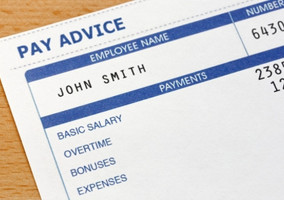More than a sixth of chief executives at British charities were privately educated, a survey by ACEVO has revealed.
The umbrella body’s latest edition of its annual Pay and Equalities surveys also found that the gender pay gap among charity CEOs has widened to 10.8%, reversing a downward trend in recent years.
Overall, the median annual basic salary reported by sector leaders in 2022 was £56,000, down from £58,000 the year before.
Similar to previous years, just 7% of respondents were from Black, Asian and minoritised ethnic backgrounds, compared to around 15% of the British population.
Meanwhile, the proportion of leaders who reported having an impairment, learning condition or learning difference increased to 20%, close to the 21% of working age adults nationally.
17.5% privately educated
The 2022 Pay and Equalities Survey gathered 897 responses from charity chief executives in the UK between 4 April and 5 May 2022.
Some 17.5% of respondents said they attended an independent or fee-paying school for most of their education between the ages of 11 and 16.
This compares to around 7% of the wider population of the UK.
But some of the charity CEOs who reported that they attended private schools (around one in six) received a means-tested bursary during their studies.
And two-thirds of respondents reported that neither of their parents had attended university.
This is the first time that ACEVO has collected socio economic diversity data from its survey respondents.
Gender pay gap widens to 10.8%
Male charity leaders earn on average 10.8% more than their female counterparts, down from 7.6% last year, ACEVO found in its latest report.
On average, male bosses reporting a median salary of £60,000 compared with £53,500 for female respondents.
Some 58% of leaders reported receiving a pay rise in 2022, compared to 37% the year before.
ACEVO said it was encouraged to see that 71% of charity CEOs now benefitted from flexible working policies.
But it expressed concern about CEOs’ access to personal development steadily decreasing from 60% in 2018 to 50% this year.
Jane Ide, ACEVO’s chief executive, said: “It’s encouraging that we’re seeing a return to some stability in senior leader pay and reward and leaders’ own sense of job security in the wake of the Covid-19 pandemic. Stability is important to enable leaders to plan ahead effectively with certainty.
“It’s to be welcomed that more flexibility in working practices is becoming the norm at senior leadership level but it’s concerning that the trend to invest in ongoing professional development of leaders is declining. It is important that chairs and boards return to investment in leadership development to ensure that leaders’ skills and knowledge keep pace with the demands of the role and that they are equipped to deal with the constant challenges that face the sector. Development is not a ‘nice to have’ if leaders are to continue to make the biggest possible difference.
“It’s clear that increasing diversity, equity and inclusion of sector leaders is not accelerating at the necessary pace and must remain at the centre of focused attention. We need to ask ourselves what positive action we need to take to encourage greater change and accelerate progress. We remain committed at ACEVO to work to support our members and the wider sector make the biggest possible difference.”












